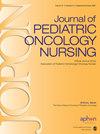Experiences of Young Children With Cancer and Their Parents With Nurses’ Caring Practices During the Cancer Trajectory
IF 1.9
3区 医学
Q2 NURSING
引用次数: 21
Abstract
Children with cancer require repeated hospitalizations and the family’s everyday life and routines undergo change. Concrete descriptions of how nurses act when caring for children with cancer throughout the various phases of care and treatment are sparsely highlighted in the literature. The aim of this study was to describe young children with cancer and their parents’ experiences of nurses’ caring practices over a 3-year period, from diagnosis to follow-up. This study is based on semistructured interviews with 25 children newly diagnosed with cancer, aged 1 to 6 years, and their parents, connected to a pediatric oncology unit in Sweden. Child and parent data were analyzed with a deductive content analysis using Swanson’s theory of caring. The result shows that nurse care practices directed toward young children with cancer and their parents are to some extent similar across a 3-year period from diagnosis to follow-up but also differ in some ways. Nurses’ caring practices aim to support children and parents in the transition to a “new normal.” Child- and family-friendly care processes include the following: creating hope and a trustful relationship, asking rather than assuming, providing knowledge and information, performing tasks skillfully, displaying an interest in the child’s and parents’ life outside the hospital, and helping the family to trust in the future and other health care providers. Based on these results, we recommend the development of a standardized and structured nursing care plan or clinical guideline with detailed information on how to carry out clinical nurse care practices in the different phases.幼儿癌症患者及其父母在癌症发展过程中护理实践的经验
患有癌症的儿童需要反复住院治疗,家庭的日常生活和惯例也会发生变化。在护理和治疗的各个阶段,护士在照顾患有癌症的儿童时如何采取行动的具体描述在文献中很少得到强调。本研究的目的是描述患有癌症的幼儿及其父母从诊断到随访的3年期间护士护理实践的经历。这项研究是基于半结构化访谈的25名儿童新诊断为癌症,年龄在1至6岁,以及他们的父母,连接到儿科肿瘤单位在瑞典。采用斯旺森的关爱理论,对儿童和家长的数据进行演绎内容分析。结果表明,从诊断到随访的3年期间,护士对患有癌症的幼儿及其父母的护理在某种程度上是相似的,但在某些方面也有所不同。护士的护理实践旨在支持儿童和家长过渡到“新常态”。对儿童和家庭友好的护理过程包括以下内容:创造希望和信任关系,询问而不是假设,提供知识和信息,熟练地完成任务,对儿童和父母在医院外的生活表现出兴趣,并帮助家庭信任未来和其他卫生保健提供者。基于这些结果,我们建议制定一个标准化和结构化的护理计划或临床指南,详细说明如何在不同阶段开展临床护理实践。
本文章由计算机程序翻译,如有差异,请以英文原文为准。
求助全文
约1分钟内获得全文
求助全文
来源期刊
CiteScore
3.10
自引率
0.00%
发文量
0
审稿时长
>12 weeks
期刊介绍:
SPECIAL PATIENTS NEED SPECIAL NURSES
Caring for children with cancer is one of the most technically and emotionally difficult areas in nursing. Not only are you dealing with children and adolescents who hurt, you must reassure and educate families, balance a multitude of other health care professionals, and keep up with ever-changing nursing practice and care. To help special nurses stay aware of the newest effective nursing practices, innovative therapeutic approaches, significant information trends, and most practical research in hematology and pediatric oncology nursing, you need the Journal of Pediatric Oncology Nursing.
The journal offers pediatric hematology, oncology, and immunology nurses in clinical practice and research, pediatric social workers, epidemiologists, clinical psychologists, child life specialists and nursing educators the latest peer-reviewed original research and definitive reviews on the whole spectrum of nursing care of childhood cancers, including leukemias, solid tumors and lymphomas, and hematologic disorders. JOPON covers the entire disease process--diagnosis, treatment, recovery, and survival, as well as end-of-life care.
Six times a year, the Journal of Pediatric Oncology Nursing introduces new and useful nursing care practice and research from around the world that saves you time and effort. Just some of the spirited topics covered include:
Cancer survivorship including later-life effects of childhood cancer, including fertility, cardiac insufficiency, and pulmonary fibrosis
Combination therapies
Hematologic and immunologic topics
Holistic, family-centered supportive care
Improvement of quality of life for children and adolescents with cancer
Management of side effects from surgery, chemotherapy, and radiation
Management of specific symptoms/diseases/co-infections
Medication tolerance differences in children and adolescents
Pain control
Palliative and end of life care issues
Pharmacologic agents for pediatrics/clinical trial results
Psychological support for the patient, siblings, and families
The dynamic articles cover a wide range of specific nursing concerns, including:
Advanced practice issues
Clinical issues
Clinical proficiency
Conducting qualitative and quantitative research
Developing a core curriculum for pediatric hematology/oncology nursing
Encouraging active patient participation
Ethical issues
Evaluating outcomes
Professional development
Stress management and handling your own emotions
Other important features include Guest Editorials from experts in the discipline, Point/Counterpoint debates, Roadmaps (personal insights into the nursing experience), and Proceedings and Abstracts from the annual Association for Pediatric Hematology/Oncology Nurses (APHON) conference.
Your special patients need special nurses--stay special by subscribing to the Journal of Pediatric Oncology Nursing today!
This journal is a member of the Committee on Publication Ethics (COPE).

 求助内容:
求助内容: 应助结果提醒方式:
应助结果提醒方式:


